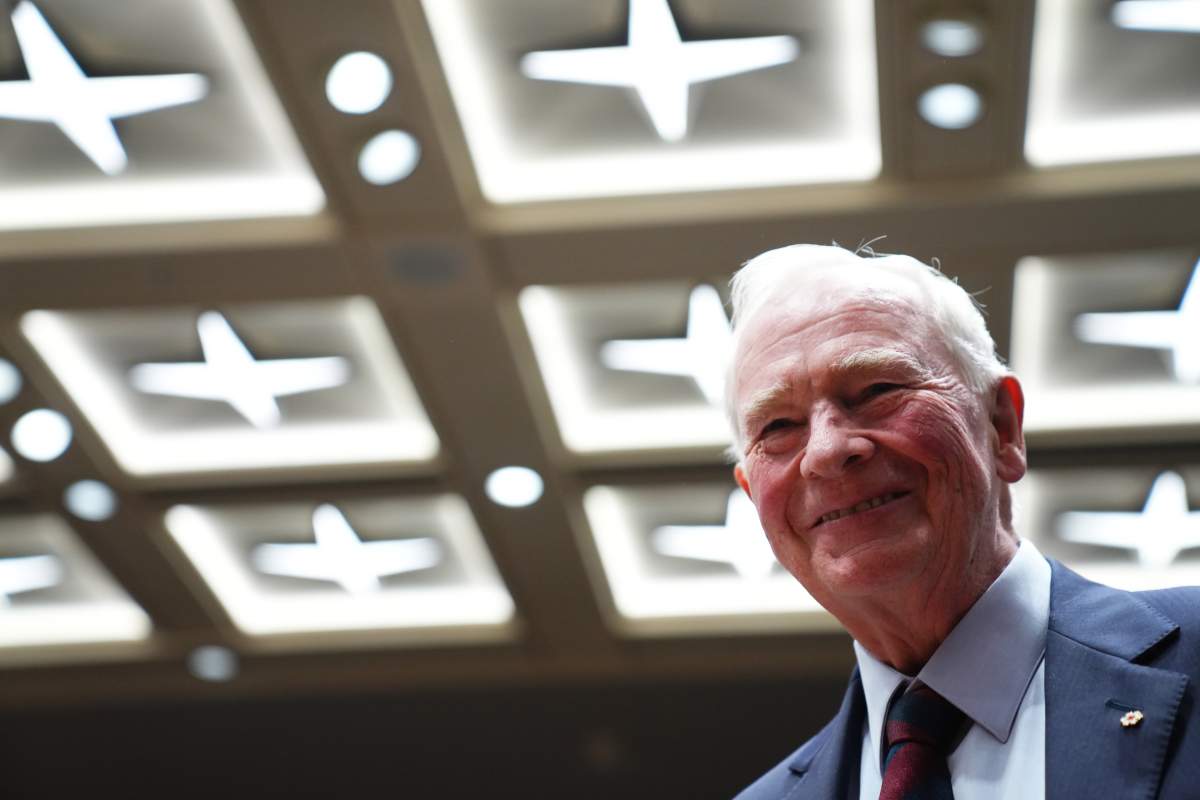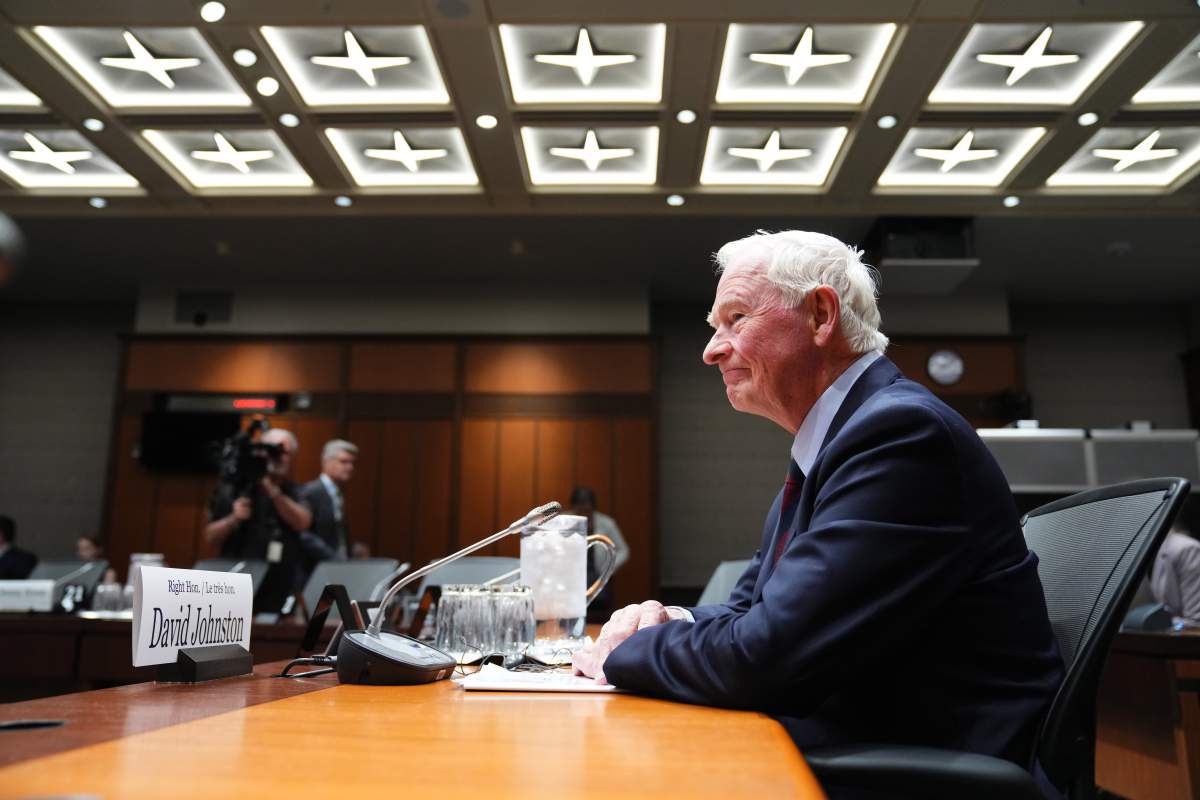David Johnston says his public hearings into foreign interference allegations will begin next month despite calls for him to resign as the government’s special rapporteur on the matter.

Johnston appeared at the procedure and House affairs committee for three hours Tuesday, answering questions from members over his role as special rapporteur and his interim report released last month.
The 81-year-old former governor general, who was named special rapporteur by Prime Minister Justin Trudeau to investigate claims of foreign interference, has been under scrutiny over reported ties to Trudeau and the Pierre Elliott Trudeau Foundation.
He has faced renewed scrutiny from opposition MPs since releasing his interim report last month, which determined an independent public inquiry — a forum opposition MPs have been seeking for months to investigate the claims — was not warranted due to issues around national security.

Instead, Johnston recommended public hearings overseen by him.
Trudeau has said he will abide by Johnston’s recommendations.
“I have heard clearly the disagreement with my recommendations not to call a public inquiry as well as allegations about my integrity and my independence. These allegations are … false and the decision to repeat them does not make them true,” Johnston told MPs on the committee.
“The issue of foreign interference deserves serious and robust debate. I will continue to invite disagreement on my recommendations, but will not be deterred from completing my work.”
Last Wednesday, opposition MPs voted in favour of a non-binding motion for Johnston to step aside as special rapporteur. The final vote was 174-150, with Liberal MPs voting against the motion. In response to the vote, Johnston said he would not be leaving his role.

NDP Leader Jagmeet Singh, whose party tabled that motion, told reporters Tuesday he is “disappointed” Johnston remains in the role.

Get breaking National news
Singh joined Tuesday’s committee session to question how Johnston came to his conclusions, which he said he disagrees with “strongly.”
The NDP leader questioned Johnston over how he plans to include diaspora communities in his public hearings.
“How do you expect that people from diaspora (communities), knowing that they are already targeted, … (would have) any sort of confidence to attend to a public hearing given the threats to themselves, the community and potential backlash and repercussions to their family?” he asked.
Johnson said he hopes that over the next five months, the hearings will be able to shed light on how to better protect diaspora communities.

The hearings hope to “develop much more effective ways of one, equipping ourselves with our intelligence agencies to deal with them more effectively, and secondly, acquainting Canadians to the fact that so many people in diaspora communities are unwitting victims of something that lies far beyond them, and that we as Canadians have a responsibility to protect them,” Johnston said.
He added that some people will not want to appear before a public hearing, and if so, he hopes anyone who wants to make a submission to the hearings can do so in other forums, such as in writing.
Johnston said in his public hearings, Canadians will be able to hear publicly from government representatives, security and intelligence officials and diaspora communities.
He added he will be supported by three special advisers with expertise in national security, intelligence law and diaspora community matters.
Johnston did not reveal an exact start date for the hearings.
“Together, we will develop recommendations on the urgent changes necessary to try to protect Canada’s democratic institutions and, crucially, Canadians’ faith in these institutions,” he said in French.

Furthermore, he added he hopes the hearings can find a “better balance” in terms of what information can be classified and what can be public.
Johnston’s interim report found significant shortcomings in the way Ottawa handles intelligence about alleged foreign meddling.
“Methods of foreign interference are rapidly becoming more sophisticated. I’ve identified significant shortcomings to detect, combat and deter this growing threat,” he said, adding foreign interference has been growing in Canada, and the government’s ability to adapt isn’t keeping up.
Johnston will be in the role until October.
- Queen’s University students stranded in Doha after Iran attack shuts down airspace
- Iran begins search for new leader; U.S. military says 3 service members killed
- Attack on Iran triggers global flight disruptions, impacts Canadian travellers
- Carney calls for protection of civilians as U.S., Israel strike Iran










Comments
Want to discuss? Please read our Commenting Policy first.